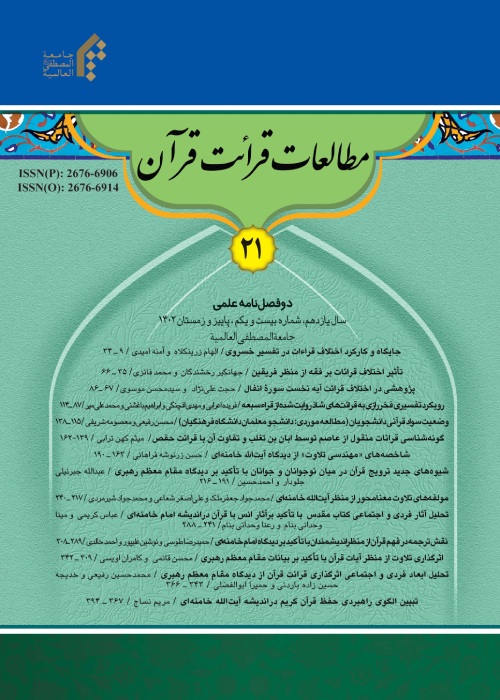An Analysis of the Phrase “Qiraʾat al-ʿAmmah” and Similar Phrases in the Exegesis of al-Farraʾ
Discussion of the topic of modes of recitation of the Qurʾān is one of the important topics in the Qurʾānic sciences that not only deals with the accuracy of Qurʾānic recitation, but also effects the understanding and exegesis of Qurʾānic verses and also impacts the derivation of Islamic law and understanding of theological matters. In spite of numerous historical reports that indicate that there was no single uniform recitation in all the Islamic lands throughout history, some scholars have appealed to phrases such as “Qirāʾat al-ʿĀmmah” (lit. the recitation of the masses) which are found in sources dating back to the first centuries of the Hijrah, especially in al-Farrāʾ’s Maʿānī al-Qurʾān, to try and prove the existence of a single prevalent recitation among the general population throughout history. They claim that the current prevailing recitation (i.e. the narration of Ḥafṣ from ʿĀṣim) is that very same recitation that has always been prevalent. However, we note that these two claims are the result of an incorrect understanding of these expressions, and the neglecting of many other evidences which contradict these claims. A study of the phrase “Qirāʾat al-ʿĀmmah ”
and other similar phrases in al-Farrāʾ’s Maʿānī al-Qurʾān shows that in many instances such phrases are not compatible with recitation of Ḥafṣ from ʿĀṣim. Also, a comprehensive study of the instances where the phrase “Qirāʾat al-ʿĀmmah” and other similar terms in al-Farrāʾ’s work shows that the what is meant by such terms is simply the view of the majority of reciters and as such one cannot use such terms as evidence for the existence of a single prevailing mode of recitation that was accepted by the masses from the first centuries of the Hijrah or as proof that the current recitation has always been accepted as the correct one. Rather, in the exegesis of verses or derivation of religious laws from verses, it is essential that other recitations also be taken into consideration.
- حق عضویت دریافتی صرف حمایت از نشریات عضو و نگهداری، تکمیل و توسعه مگیران میشود.
- پرداخت حق اشتراک و دانلود مقالات اجازه بازنشر آن در سایر رسانههای چاپی و دیجیتال را به کاربر نمیدهد.



